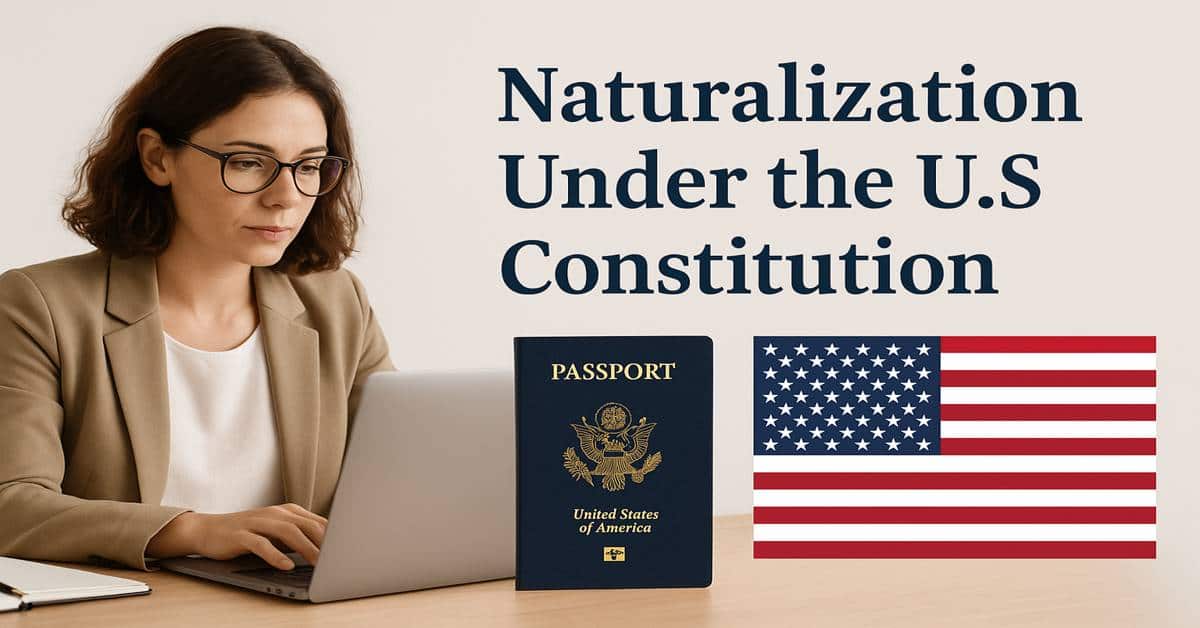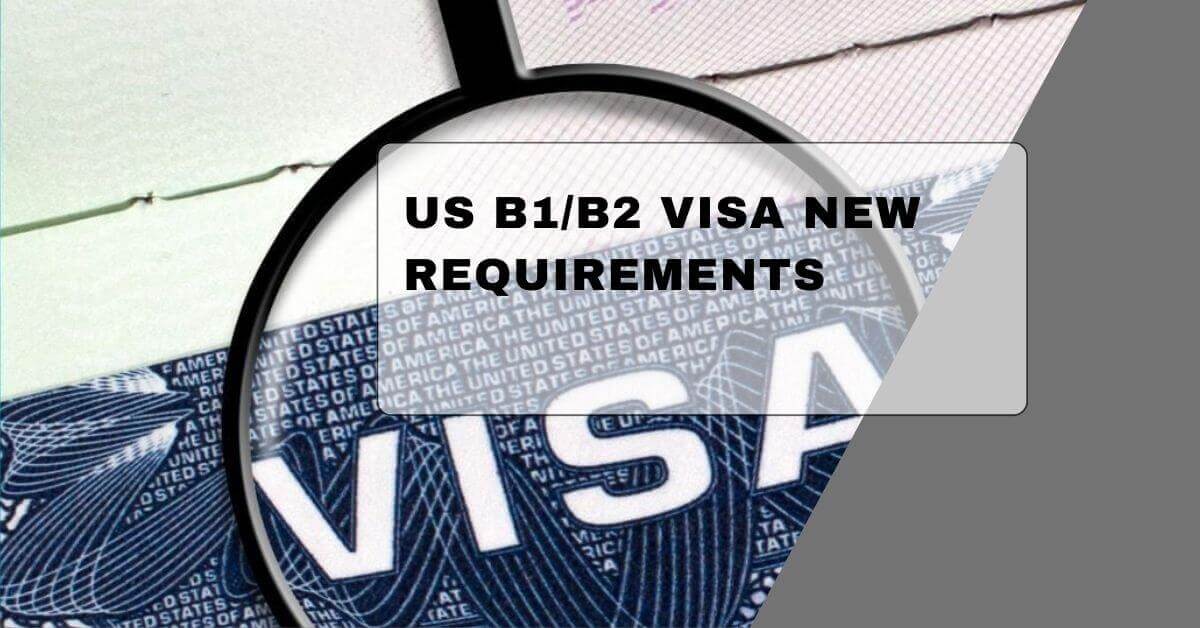Becoming a U.S. citizen is more than a legal process it’s a journey filled with hope, determination, and the promise of new opportunities. The path to citizenship can feel overwhelming, but understanding the Constitution and the steps involved can empower immigrants and their families to navigate this life-changing journey with confidence.
Who Controls Immigration Rules?
Article I, Section 8 gives Congress the authority “To establish an uniform Rule of Naturalization.” This means Congress decides how immigrants can become U.S. citizens.
Even with this power, in the early years of the United States, many states created their own immigration rules. Law professor Jennifer Chacon explains:
“For the first century of the United States’ existence, many states enacted laws regulating and controlling immigration into their own borders. Various states passed laws aimed at preventing certain groups such as people with criminal records, those reliant on public assistance, slaves, and free Black people from entering their states.”
Federal and State Rules Interact:
By the late 19th century, the U.S. Supreme Court consistently upheld federal immigration laws when challenged. However, federal rules are often influenced by state and local authorities, which means enforcement can vary in practice.
Naturalized Citizens Hold Government Office:
The Constitution allows naturalized citizens to serve in almost all government offices. The one exception is the presidency. Article II, Section 1 states:
“No Person except a natural born Citizen, or a Citizen of the United States, at the time of the Adoption of this Constitution, shall be eligible to the Office of President.”
Exceptions and Special Cases:
Exceptions and special cases in U.S. naturalization include provisions for military service members, spouses of U.S. citizens, and applicants with disabilities. These exceptions can modify residency requirements, expedite processing, or allow for flexibility in meeting standard eligibility criteria.
Naturalization Oath and Ceremony:
The naturalization oath and ceremony is the final step in becoming a U.S. citizen. During this formal event, applicants pledge allegiance to the United States, after which they receive a certificate of naturalization confirming their citizenship.

Rights and Responsibilities of Naturalized Citizens:
Rights and responsibilities of naturalized citizens include voting in federal and local elections, serving on juries, and participating in civic life. Naturalized citizens must also obey U.S. laws, pay taxes, and uphold the Constitution, just like native-born citizens.
Constitutional Provisions for Citizenship:
Constitutional provisions for citizenship are outlined in the 14th Amendment and related laws. These establish the legal framework for birthright citizenship, naturalization, and the equal protection of all citizens under U.S. law.
Eligibility Criteria for Naturalization:
Eligibility criteria for U.S. naturalization generally require applicants to be at least 18 years old, have permanent resident status, demonstrate good moral character, and meet residency and physical presence requirements. Language proficiency and civics knowledge are also required.
Check Also: Form N-400 Application for Naturalization
Naturalization Requirements in USA:
Naturalization requirements in the USA include filing Form N-400, passing the English and civics tests, and attending a biometric appointment and interview. Meeting these requirements ensures applicants are prepared for citizenship and fully understand their rights and obligations.
Fees and Documentation for U.S. Citizenship:
Fees and documentation for U.S. citizenship include the N-400 application fee, biometric service charges, and supporting documents like green cards, passports, and evidence of residency. Proper submission of all required materials helps prevent delays in processing.
Naturalization Interviews and Biometrics:
Naturalization interviews and biometrics are key steps in the U.S. citizenship process. Applicants attend an interview where USCIS reviews their Form N-400, tests English and civics knowledge, and verifies eligibility, while biometrics capture fingerprints, photos, and signatures to confirm identity and conduct background checks.
Dual Citizenship Considerations:
Dual citizenship considerations involve understanding the legal and practical implications of holding U.S. citizenship alongside another nationality. While the U.S. allows dual citizenship, individuals must comply with both countries’ laws, including taxes, military service obligations, and travel regulations.
How to Become a U.S. Citizen?
How to become a U.S. citizen involves fulfilling residency requirements, submitting a naturalization application, completing an interview and tests, and taking the Oath of Allegiance. Following the official process guarantees legal recognition as a U.S. citizen.
Matters for Immigrants
Knowing these constitutional rules helps immigrants understand:
- How citizenship works
- Their eligibility for government positions
- The balance between federal and state authority
Resources such as marriage green card guides and naturalization information can provide practical help in the process.
Key Takeaways:
- Congress has exclusive authority to create immigration and naturalization rules.
- Early U.S. history saw states imposing their own immigration restrictions.
- Federal immigration law is shaped not just by statutes but also by state and local influences.
- Naturalized citizens can hold almost all government offices, but the presidency is reserved for natural-born citizens.
Conclusion:
Becoming a U.S. citizen is a structured process guided by the Constitution, giving Congress authority over naturalization while balancing federal and state influences. Naturalized citizens gain nearly all rights and responsibilities of native-born citizens, with the presidency as the only exception. Understanding the process, requirements, and resources empowers immigrants to confidently navigate their path to citizenship.
Frequently Asked Questions:
-
Can naturalized citizens hold public office?
Yes, naturalized citizens can serve in almost all government positions. The one exception is the presidency. As stated in Article II, Section 1, only natural-born citizens can become President.
-
Who decides how immigrants can become U.S. citizens?
Congress has the exclusive power to create laws governing naturalization. Early in U.S. history, however, some states tried to enforce their own immigration rules, restricting who could enter or settle. Today, federal law governs the process.
-
What is naturalization?
Naturalization is the legal process through which a foreign-born person becomes a U.S. citizen. The Constitution gives Congress the authority to establish uniform rules for this process under Article I, Section 8.






